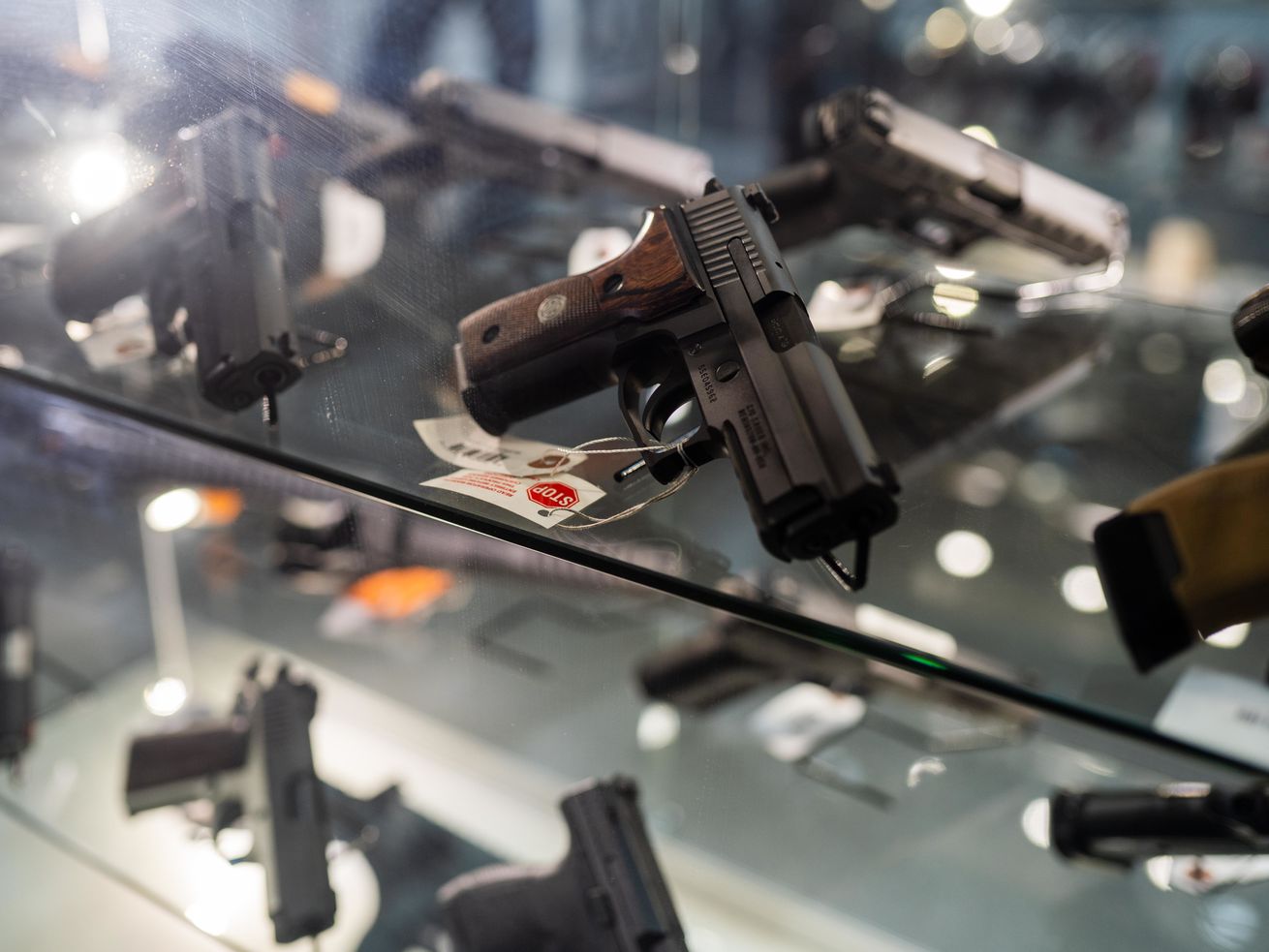
The Illinois attorney general’s appeal of a downstate judge’s ruling sets up a battle over whether the state can require residents to hold an ID card in order to own a firearm. First enacted in 1968, the state’s Firearm Owner Identification Act does just that. But a southern Illinois judge said that makes residents’ Second Amendment rights a “façade.”
SPRINGFIELD — For more than half a century, anyone in Illinois who wanted to own a gun needed to first apply for a special state identification card.
But now the state’s top court is being asked to decide whether the Firearm Owner’s Identification cards — popularly called FOID cards — are a necessary safeguard or a violation of the U.S. Constitution.
Last week, a downstate judge ruled the FOID card system was unconstitutional, reducing residents’ Second Amendment rights to bear arms to a “façade.”
Gun control advocates denounced the ruling as “frightening and radical,” and Illinois Attorney General Kwame Raoul quickly appealed the decision to the Illinois Supreme Court.
The appeal filed last Thursday sets up a battle over whether the state can require its citizens to hold such an ID card in order to own a firearm.
First enacted in 1968, the state’s Firearm Owner Identification Act requires Illinoisans to apply for the card with the Illinois State Police in order to legally own a firearm. But in his ruling Tuesday, White County Judge T. Scott Webb wrote that the FOID card “makes criminals out of law abiding citizens who are attempting to protect their lives within their homes.”
“A citizen in the State of Illinois is not born with a Second Amendment right. Nor does that right insure when a citizen turns 18 or 21 years of age. It is a facade,” wrote White. “They only gain that right if they pay a $10 fee, complete the proper application, and submit a photograph. If the right to bear arms and self-defense are truly core rights, there should be no burden on the citizenry to enjoy those rights.”
/cdn.vox-cdn.com/uploads/chorus_asset/file/22269234/GUNS_020121_18.jpg)
Pat Nabong/Sun-Times file
But Webb’s ruling is a “frightening and radical decision contrary to a whole body of research about the effectiveness of FOID-type laws” said Jonathan Baum, a lawyer for the Giffords Law Center to Prevent Gun Violence, who has submitted briefs in the case supporting the FOID system’s constitutionality.
“The whole emphasis of this decision is ‘Well, this is taking guns away from law-abiding citizens.’ And yet it wants to strip the state of the mechanism for determining who is abiding the law,” Baum said. “So, all this does is deprive states of a critical tool for keeping guns out of the hands of people who shouldn’t have them.”
Webb’s order also dismisses charges against Vivian Brown, whose 2017 arrest had initiated the lawsuit. Brown was charged with owning a rifle without a FOID card even though she was a “law-abiding citizen” and “otherwise eligible to receive a FOID card,” according to her lawyer David Sigale.
Sigale is also the lawyer for several cases initiated by the Illinois State Rifle Association that challenge Illinois State Police delays in FOID and Concealed Carry card applications and renewals. Sigale denied the state gun lobbying group was involved with Brown’s lawsuit, saying she “merely knew someone prominent in the Second Amendment rights community” who put her in touch with him.
/cdn.vox-cdn.com/uploads/chorus_asset/file/22483343/GUNS_020121_8.jpg)
Brian Rich/Sun-Times file
Sigale disagreed with Baum, arguing that “numerous other mechanisms” are in place to keep guns away from those who shouldn’t have them and that the FOID law “really serves no purpose.”
“Let’s say a hypothetical person was committing a crime with a rifle or had a felony criminal conviction that would disqualify them from owning a firearm. Without a FOID card that would still be a crime, so the FOID does nothing except to hurt lawful people like Ms. Brown,” Sigale said.
Baum said he is “confident” the state Supreme Court will take up the case in the summer and reverse Webb’s ruling.
Sigale said he “hopes that the [Illinois Supreme] Court knows this law turns people into second-class citizens and treats this right more like a privilege and that’s not how it’s supposed to be.”
